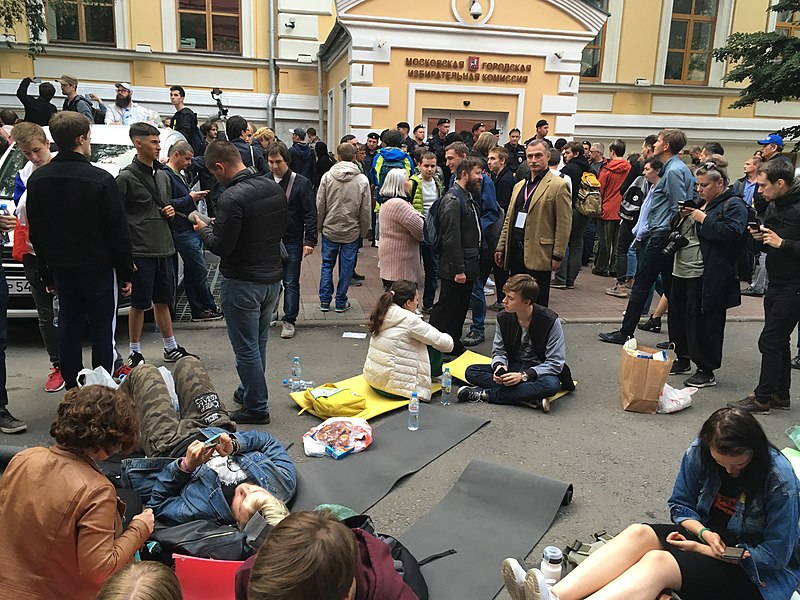Russia’s Duma (lower chamber of the parliament) election has been neither free, nor open. The ruling “United Russia” has allegedly won a constitutional majority, enabling the regime of President Putin to formally legalize any of its decisions. The brutal oppression of the opposition in the run-up to the election, the condition of the election itself and the way the Duma works all have little to do with a parliamentary system as we know it from liberal democracies. Yet, this election gives an important insight into the black box of Russian domestic politics. Some of them might even be a little less depressing than expected, partially.
First, the very fact that the elections is taking place even when the results are more or less known in advance deserves attention. Why do Russian elites even bother to organize this political happening? Indeed, because the costs of not organising them at all are higher than those of manipulating them and carefully staging an election. The duma elections give Russian elites an opportunity to show how committed they are to the regime. Providing expected “results” for the governing party is a benchmark upon which the work of a regional governor is measured. Creativity in manipulating the election is one of the last forms of political competition left in Russia. An optimist might say that any space for political creativity is better than none. Moreover, elections are a political happening with cheap food and musical performances provided at the polling stations. Elections have a touch of a folk festival; they are a uniting element that provides at least some identity to the people, who expect this event to happen. This is a case of imitation of political processes and institutions, but the sheer fact of this imitation in an authoritarian regime should not be underestimated. Well-preserved fake democratic institutions might become real ones, if a liberal democracy is established one day.
Second, the unprecedented scale of civil rights violations in the run-up to the elections gives us a taste of how Vladimir Putin and his team are planning to run the country in the future. Not only political activists were targeted – independent journalism experiences tremendous pressure as well. Most notably, the entire institution of independent election observation was targeted. The most prominent „Golos“ (the Voice), an NGO that has been conducting election observation for decades, was listed as a foreign agent month before the election. The OSCE mission was limited to such a small number that the organization decided to skip the observation all together. Most critics of the regime were not allowed to run and the state apparatus did literally anything to discredit the “smart voting” approach of Alexey Navalny’s team, who called to vote for candidates who were not running on the “United Russia” ballot but had a chance to make it into the parliament. This all shows how frightened the regime is and how little tools it has at its disposal to “manage” the Russian “democracy”. In fact, there is nothing left apart from repressions and elections fraud.
The sheer scale of the latter – and this is the third bitter-sweet outcome of this election – shows how fed up people in Russia are with the ruling elites despite massive propaganda. According to Sergey Spilkin, a renowned mathematician who became famous analysing electoral statistics, the real support for United Russia lies at around 33% as opposed to the official results of 49,8%, the real turn out at 38% (51,7 % officially). Even more striking is the success of Navalny’s smart voting: candidates supported by his team won 15 seats in the Duma (out of 450). The communist party, which many supported in order not to vote for the ruling ”United Russia”, found itself under pressure both from inside (many newly elected MPs aspire to be a serious opposition) and outside (its demonstrations were disseminated and its layers were temporarily arrested). This split in the elites is remarkable.
All in all, the Duma elections provide little cause for optimism. The regime of Putin once again got away with election fraud and scaled up the level of repressions against civil society and the democratic opposition. Many MPs who made their names by making striking anti-Western statements like foreign affairs committee chair Leonid Slutskiy are in again. The ruling party won the election. However, between the lines of reports about its glorious victory, one reads the growing dissatisfaction among the people in Russia. We therefore have – now more than ever – to continue cooperating closely with our partners from what remains of the Russian civil society. Offer training to independent journalists. Empower NGOs. And when necessary, help make sure human rights defenders get into Europe quickly, before they get arrested. They need all the support they can get now.

